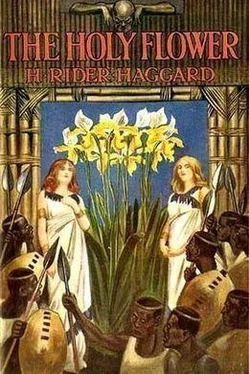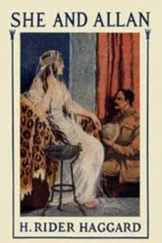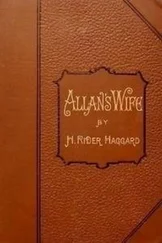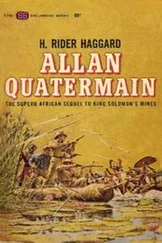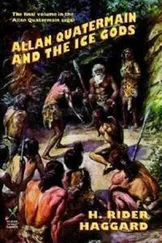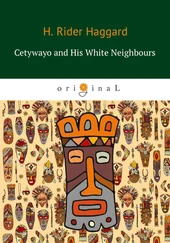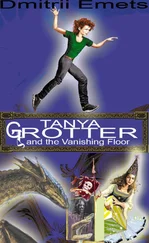I suggested to Brother John that he should take his wife and daughter and the three beasts and go with them. He seemed inclined to accept the idea, needless to say for their sakes, not for his own, for he was a very fearless old fellow. But the two ladies utterly refused to budge. Hope said that she would stop with Stephen, and her mother declared that she had every confidence in me and preferred to remain where she was. Then I suggested that Stephen should go too, but at this he grew so angry that I dropped the subject.
So in the end we established them in a pleasant little hollow by a spring just over the crest of the rise, where unless our flank were turned or we were rushed, they would be out of the reach of bullets. Moreover, without saying anything more we gave to each of them a double–barrelled and loaded pistol.
Chapter XX
The Battle of the Gate
By now heavy firing had begun at the north gate of the town, accompanied by much shouting. The mist was still too thick to enable us to see anything at first. But shortly after the commencement of the firing a strong, hot wind, which always followed these mists, got up and gradually gathered to a gale, blowing away the vapours. Then from the top of the crest, Hans, who had climbed a tree there, reported that the Arabs were advancing on the north gate, firing as they came, and that the Mazitu were replying with their bows and arrows from behind the palisade that surrounded the town. This palisade, I should state, consisted of an earthen bank on the top of which tree trunks were set close together. Many of these had struck in that fertile soil, so that in general appearance this protective work resembled a huge live fence, on the outer and inner side of which grew great masses of prickly pear and tall, finger–like cacti. A while afterwards Hans reported that the Mazitu were retreating and a few minutes later they began to arrive through the south gate, bringing several wounded with them. Their captain said that they could not stand against the fire of the guns and had determined to abandon the town and make the best fight they could upon the ridge.
A little later the rest of the Mazitu came, driving before them all the non–combatants who remained in the town. With these was King Bausi, in a terrible state of excitement.
"Was I not wise, Macumazana," he shouted, "to fear the slave–traders and their guns? Now they have come to kill those who are old and to take the young away in their gangs to sell them."
"Yes, King," I could not help answering, "you were wise. But if you had done what I said and kept a better look–out Hassan could not have crept on you like a leopard on a goat."
"It is true," he groaned; "but who knows the taste of a fruit till he has bitten it?"
Then he went to see to the disposal of his soldiers along the ridge, placing, by my advice, the most of them at each end of the line to frustrate any attempt to out–flank us. We, for our part, busied ourselves in serving out those guns which we had taken in the first fight with the slavers to the thirty or forty picked men whom I had been instructing in the use of firearms. If they did not do much damage, at least, I thought, they could make a noise and impress the enemy with the idea that we were well armed.
Ten minutes or so later Babemba arrived with about fifty men, all the Mazitu soldiers who were left in the town. He reported that he had held the north gate as long as he could in order to gain time, and that the Arabs were breaking it in. I begged him to order the soldiers to pile up stones as a defence against the bullets and to lie down behind them. This he went to do.
Then, after a pause, we saw a large body of the Arabs who had effected an entry, advancing down the central street towards us. Some of them had spears as well as guns, on which they carried a dozen or so of human heads cut from the Mazitus who had been killed, waving them aloft and shouting in triumph. It was a sickening sight, and one that made me grind my teeth with rage. Also I could not help reflecting that ere long our heads might be upon those spears. Well, if the worst came to the worst I was determined that I would not be taken alive to be burned in a slow fire or pinned over an ant–heap, a point upon which the others agreed with me, though poor Brother John had scruples as to suicide, even in despair.
It was just then that I missed Hans and asked where he had gone. Somebody said that he thought he had seen him running away, whereon Mavovo, who was growing excited, called out:
"Ah! Spotted Snake has sought his hole. Snakes hiss, but they do not charge."
"No, but sometimes they bite," I answered, for I could not believe that Hans had showed the white feather. However, he was gone and clearly we were in no state to send to look for him.
Now our hope was that the slavers, flushed with victory, would advance across the open ground of the market–place, which we could sweep with our fire from our position on the ridge. This, indeed, they began to do, whereon, without orders, the Mazitu to whom we had given the guns, to my fury and dismay, commenced to blaze away at a range of about four hundred yards, and after a good deal of firing managed to kill or wound two or three men. Then the Arabs, seeing their danger, retreated and, after a pause, renewed their advance in two bodies. This time, however, they followed the streets of huts that were built thickly between the outer palisade of the town and the market–place, which, as it had been designed to hold cattle in time of need, was also surrounded with a wooden fence strong enough to resist the rush of horned beasts. On that day, I should add, as the Mazitu never dreamed of being attacked, all their stock were grazing on some distant veldt. In this space between the two fences were many hundreds of huts, wattle and grass built, but for the most part roofed with palm leaves, for here, in their separate quarters, dwelt the great majority of the inhabitants of Beza Town, of which the northern part was occupied by the king, the nobles and the captains. This ring of huts, which entirely surrounded the market–place except at the two gateways, may have been about a hundred and twenty yards in width.
Down the paths between these huts, both on the eastern and the western side, advanced the Arabs and half–breeds, of whom there appeared to be about four hundred, all armed with guns and doubtless trained to fighting. It was a terrible force for us to face, seeing that although we may have had nearly as many men, our guns did not total more than fifty, and most of those who held them were quite unused to the management of firearms.
Soon the Arabs began to open fire on us from behind the huts, and a very accurate fire it was, as our casualties quickly showed, notwithstanding the stone schanzes we had constructed. The worst feature of the thing also was that we could not reply with any effect, as our assailants, who gradually worked nearer, were effectively screened by the huts, and we had not enough guns to attempt organised volley firing. Although I tried to keep a cheerful countenance I confess that I began to fear the worst and even to wonder if we could possibly attempt to retreat. This idea was abandoned, however, since the Arabs would certainly overtake and shoot us down.
One thing I did. I persuaded Babemba to send about fifty men to build up the southern gate, which was made of trunks of trees and opened outwards, with earth and the big stones that lay about in plenty. While this was being done quickly, for the Mazitu soldiers worked at the task like demons and, being sheltered by the palisade, could not be shot, all of a sudden I caught sight of four or five wisps of smoke that arose in quick succession at the north end of the town and were instantly followed by as many bursts of flame which leapt towards us in the strong wind.
Читать дальше
Конец ознакомительного отрывка
Купить книгу
